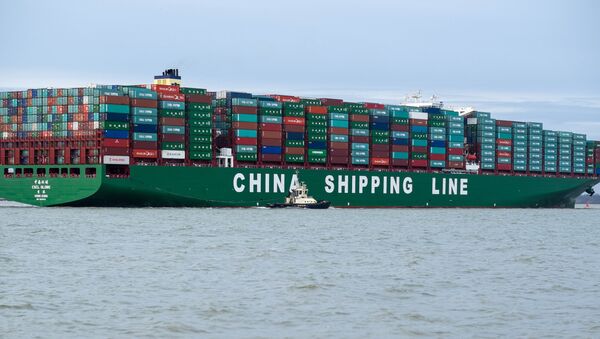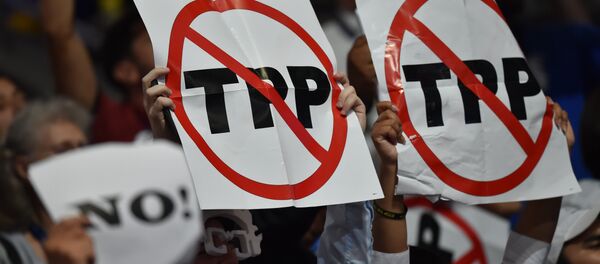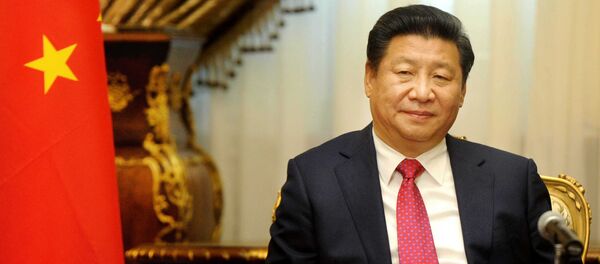On January 23, Donald Trump signed an executive order fulfilling his campaign promise to stop the Trans-Pacific Partnership (TPP) trade deal.
Although it was uncertain whether the deal would have been ratified by the US Congress, Trump's move has finally killed off the controversial deal, which had 12 signatories and proposed to create the world's largest free trade area, accounting for roughly 40 percent of global GDP.
TTP was strongly supported by former US President Barack Obama, who saw the free trade deal as a crucial part of his "pivot to Asia" foreign policy.
However, the deal was the subject of protests in the US and other countries such as New Zealand, as people feared that reducing trade barriers would have a negative effect on jobs in developed countries, and that regulatory changes would leave public institutions vulnerable to legal action from multinational corporations and intensify the commercialization of public services such as healthcare.
China was not involved in the TPP negotiations, but other signatories have said they would like to continue the project in another form, with the inclusion of China.
"There is also the opportunity for the TPP to proceed without the United States," Turnbull told reporters in Canberra.
"Certainly there is the potential for China to join the TPP," he added.
Lourdes Casanova, Academic Director of the Emerging Markets Institute at Cornell University, told Radio Sputnik that China is ready to assume a leadership role in support of global free trade, in the absence of the US.
"China is going to try to fill the vacuum that the US is leaving on the one hand, and on the second hand it will try to enlarge the APEC with 21 members," Casanova said.
"China will not shut its door to the outside world but open [them wider]," Xi told APEC delegates.
President Xi also defended free trade in a speech to the Davos World Economic Forum last week, and outlined plans to expand the RCEP.
"We will advance the building of the Free Trade Area of the Asia Pacific and negotiations of the Regional Comprehensive Economic Partnership to form a global network of free trade arrangements. China stands for concluding open, transparent and win-win regional free trade arrangements and opposes forming exclusive groups that are fragmented in nature," the Chinese President said.
Casanova said that Japan has been particularly hard hit by the collapse of the TPP.
"Japan has a historical rivalry with China, so for Japan the TPP was very important and it feels it has been left alone. At the same time, let's not forget that China is already the most important trade partner for Japan, they already have a very close relationship in terms of trade, even if the rhetoric between them is aggressive at times."
"Mexico of course is the weakest link of NAFTA, although for Mexico the US was the most important trade partner; as much as 80 percent of Mexican exports go to the US, so Mexico is left in a bit of a weak position."
"What is Mexico going to do? One thing, of course, is getting closer to China. (Although) Mexico was one of the last countries to approve the entry of China to the WTO because they saw the threat to Mexican exports of China's exports to the US. So from Latin America, Mexico was the country that probably had the most controversial stance against China. So, it would be a little bit odd if Mexico takes China's side."
"But, already they have started saying that if Mexico doesn't trade with its neighbor (the US) after the renegotiation of NAFTA, which would be the logical thing one way or the other, Mexico may turn to China," Casanova said.
Have you heard the news? Sign up to our Telegram channel and we'll keep you up to speed!





